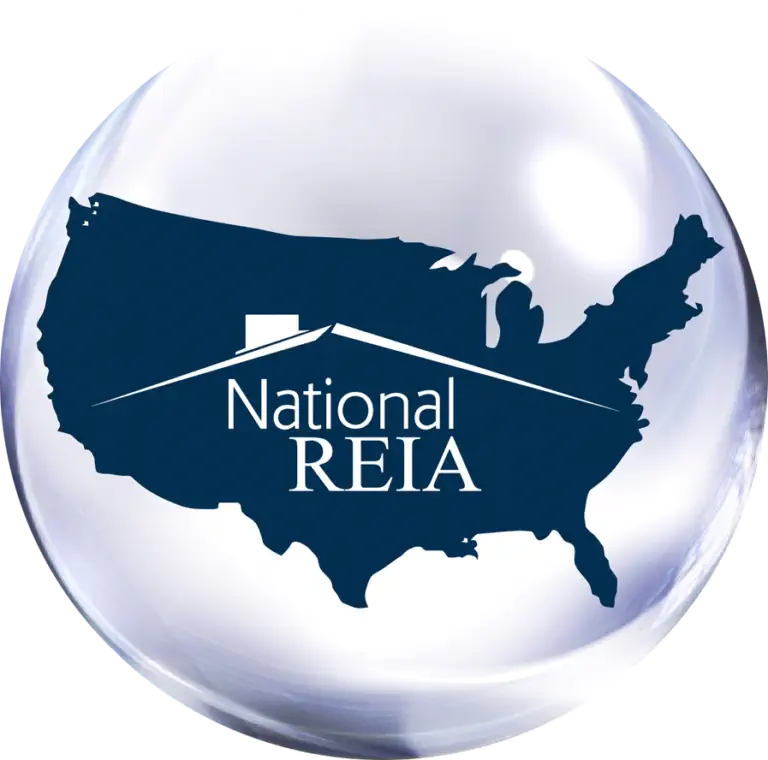
At MAREI’s Speed Networking event in December, a LOT of people shared that they were just getting started and weren’t sure exactly what they needed to do. They expressed a desire for all the help they could get
We get that question a lot: Where do I start? The answer can be approached in several ways:
- What strategies should I consider as a new investor?
- What do I need to know/learn as a new investor?
- What should I do first?
Guest Blog Post from Kim Tucker a local real estate investor who along with her husband Don and son Scott, buy houses at kcmoHomeBuyer.com. This article started with the outline for Brendon Pishny’s presentation that is coming up for the February 2025 MAREI Meeting.
Strategies for New Investors
New investors often start in one of six ways:
1. Private Partner
Some investors have the money to do deals. They’ve built a successful business or nest egg and want to put their money to work without doing the heavy lifting. These investors lend money or partner on deals privately, earning interest, a portion of profits, or equity to benefit from tax advantages.
Yes, these folks are in the room, you have to talk to people to find them.
2. Rentals
Other investors have some savings—not a huge amount, but enough for overhead, down payments, and repairs. They’re looking for cash flow and tax benefits, so they invest in rental properties. This strategy offers cash flow, debt paydown, appreciation, depreciation, and other perks.
This was a super hot strategy in the days of super-low interest rates . . a new term was even coined . . the BRRRR method. Look it up, it still works, but it’s a lot tougher with interest rates above 4 percent.
3. House Hacking
You might have house-hacked without even realizing it. If you bought a house for your kids at college and rented out extra rooms to their friends, that’s house hacking. Or if you bought a fourplex, lived in one unit, and rented out the others—same thing. This is a great way to start real estate investing, allowing you to acquire properties with lower down payments and interest rates while building equity.
4. Flipping
There are many ways to flip properties. You could buy a house and resell it immediately without listing it, which is an old-school wholesale flip. Clean it up, trim the yard, and sell it retail on the MLS—that’s a flip too. Major renovations followed by a retail sale? Also a flip.
But keep in mind you stop flipping, you stop earning. And flip profits have the highest tax rate and no tax benefits.
5. Live-In Flips
This strategy works well for those who like to take their time. Buy a fixer-upper, move in, renovate one room at a time, and sell after at least two years to gain tax-free profits and appreciation.
6. Wholesaling
Wholesaling has evolved over time. It used to mean buying a house at a low price and selling it at a slightly higher price. Today, some wholesalers’ practices have drawn criticism, and regulations are tightening. However, wholesaling can still be a viable strategy if done ethically and legally.
But with all the calling mills that don’t care about rules or pestering people with incessant calls and texts, that work on the law of average, it’s a really competitive market. And the state of KS along with many states has been seeking to add laws.
Choosing Your Strategy
The best strategy depends on your situation, resources, and goals. You are going to have to take a self assessment and see what you have to devote in time, knowledge, funds, and credit.
What we do know is that wholesaling and flipping are very labor intensive but turn out some really great profits when everything goes according to plan. But many are finding out right now that as the market starts to shift, those high-dollar retail flips are not selling and so these investors are not buying up the wholesalers inventory. So a lot of wholesalers and flippers are asking for help right about now.
House hacking and rentals always seem to work as long as everything goes to plan and you don’t have a sudden reason to sell . . . and while you don’t make killer right now returns with cash flow . . don’t forget you typically have a rent increase every year. The rent coming in pays the mortgage so you build equity. The property generally appreciates. You have standard depreciation. There are a few other ways to depreciate more faster. And when it comes time to sell, you can 1031 your equity into the next property.
Think about this deal – duplex by KU Med. bought in 2015, that cash flowed at the $650 rents. It has cash flowed every year since, with rent increases. It rents now for $1600 a side (extra $2000 a month) Yes there’s been money spent on updates, but also depreciation. And now the value of that duplex has basically doubled in 9 years
Or it could have been wholesaled for a $10 to $20,000 profit, no depeciation, highest tax rates and no 1031.
The deal you want will depend on what you have and what you need. Then again you might be the silent money guy who partners with the flipper or the renter investor for a piece of the pie.
What Do You Need to Know?
I literally wrote a book covering all the basics—strategies, formulas, finding deals, funding deals, and more. You can download The Beginner’s Guide for free at MAREI.org/real-estate-investor-education.
What Should You Do First?
Here are 10 steps I recommend to every new investor:
- Read and Listen: Dive into reputable resources. Avoid taking advice solely from random YouTubers.
- Join Your Local REIA: Membership costs are worth it for the connections and education.
- Use Your REIA’s Library: Many REIAs offer hours of training and past event recordings.
- Attend Events: Participate in meetings, workshops, and pop-ups.
- Take Notes & Ask Questions: Learn, ask, and get answers at meetings or online forums.
- Talk to Lenders: Learn the formulas hard money lenders use and how regular lenders operate.
- Look at Houses: Study properties online, in person, and with contractors or inspectors.
- Learn What a Good Deal Is: Understand property values and profit potential.
- Plan Your Niche: Figure out your strategy, funding sources, and backup plans.
- Do a Deal: Once complete, analyze what went well and what didn’t. Then, do another deal.
In the next 45 days:
- Download and read my book and Vena Jones-Cox’s book.
- Attend the February 11th MAREI Meeting with Brendon Pishny on Getting Started.
- Join MAREI if you haven’t already and dig in.
- Check out Saturday Master Classes, even if they don’t all apply to you right now.
- Explore Express Success: Gain access to hundreds of hours of training, Saturday classes, and one-on-one email coaching.
Take Brendon Pishny’s 6-Week Landloing 101 Class . . . if buy and hold is your strategy of choice . . it starts Monday, February 17th.


